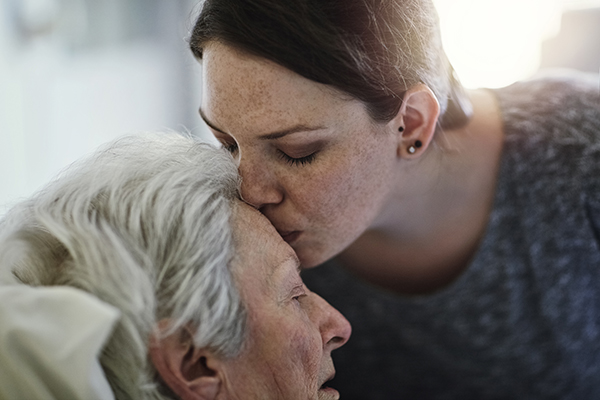While millions of older adults are dealing with the challenges of Alzheimer’s disease, a far greater number of family members are trying to cope with caring for them. Surprisingly, nearly 75% of family caregivers are managing their senior loved ones’ dementia care needs by themselves, with only 26% reaching out for professional care support.
Naturally, families want to do all they can in order to satisfy their loved ones’ needs, but dementia caregiving can result in an exceptionally high level of both mental and physical stress. This takes a toll on the caregivers’ own overall health over the years, especially once the disease progresses. And a lot of members of the family think there is an all-or-nothing strategy: either manage the senior’s needs at home, or face moving him or her into nursing care.
Independence-4-Seniors Home Care fortunately, offers an alternative that’s beneficial to seniors with dementia along with their family caregivers: the addition of a skilled in-home dementia caregiver to provide as much or as little respite care as needed. Here’s why we consider dementia care in the home to be the best option:
• Highly trained care. Because our caregivers are both skilled and experienced with the many complex aspects of Alzheimer’s disease and other types of dementia, they are able to proactively address and more effectively manage even the most difficult of behaviors, like wandering, aggression, sundowning, and many more.
• Enhanced safety. The chance of accidents is elevated for those with dementia. Even something that seems as straightforward as helping your senior loved one into the shower or onto the toilet can create a dangerous fall risk. Professional caregivers know how to watch out for and prevent falls, keeping both you and your loved one safe from personal injury.
• Sustainable aging in place. Sometimes, family caregivers become so overwhelmed attempting to meet each one of a senior loved one’s needs in combination with their own that a transition to a residential dementia care facility seems to be inevitable. Yet working with an expert dementia caregiver opens up the possibility of long-term, effective care at home.
• Ease of mind. Understanding your senior loved one is in qualified hands helps you to take a breath, relax, and step away from the demands of caregiving for the much-needed breaks that alleviate both stress and the possibility of caregiver burnout and depression.
It’s best to investigate in-home dementia care solutions as early in the disease as you can, to allow for an even more seamless transition and to ensure your loved one gets the most beneficial care right from the start. Call us at (630) 323-4665 to request a consultation in the comfort of home, where we can develop a highly individualized plan of care that will maximize quality of life for your senior loved one today, and as needs change in the days to come.

